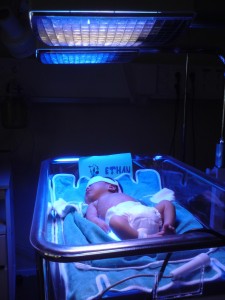G6PD Deficiency
3. What are the food & drugs should be avoided in children diagnosed with G6PD deficiency?
Patients with glucose-6-phosphatase dehydrogenase (G6PD) deficiency should heed the following precautions:
-
Avoid oxidant drugs such as the antimalarial drugs primaquine, chloroquine, pamaquine, and pentaquine.
-
Avoid nitrofurantoin.
-
Avoid nalidixic acid, ciprofloxacin niridazole, norfloxacin, methylene blue, chloramphenicol, phenazopyridine, and vitamin K analogues.
-
Avoid sulfonamides such as sulfanilamide, sulfamethoxypyridazine, sulfacetamide, sulfadimidine, sulfapyridine, sulfamerazine, and sulfamethoxazole.
-
Avoid exposure to certain chemicals such as those in mothballs.
The following substances should also be avoided in individuals with glucose-6-phosphatase dehydrogenase (G6PD) deficiency:
-
Acetanilid
-
Doxorubicin
-
Isobutyl nitrite
-
Naphthalene
-
Phenylhydrazine
-
Pyridium
- Fava Beans and other legumes
- Sulfitesand foods containing them. Sulfites are used in a wide variety of foods, so be sure to check labels carefully.
- Mentholand foods containing it. This can be difficult to avoid as tooth paste, candy, breath mints, mouth wash and many other products have menthol added to them. Mint from natural mint oils is alright to consume.
- Artificial blue food coloringother artificial food color can also cause hemolysis. Natural food color such as found in foods like turmeric or grapes is okay.
- Ascorbic acidArtificial ascorbic acid commonly put in food and vitamins can cause hemolysis in large doses and should be avoided. It is put into so many foods that you can be getting a lot of Ascorbic Acid without realizing it. See Ascorbic Acid for more information about iron absorbtion and ascorbic acid.
- Vitamin KThis is from drugbank: “Menadione (vitamin K3), which is not used as a nutritional supplemental form of vitamin K for humans, has been reported to cause adverse reactions, including hemolytic anemia. Large doses have also been reported to cause brain damage. Vitamin K administered to newborns with G6PD Deficiency has been known to cause adverse outcomes including hemolytic anemia, neonatal brain or liver damage, or neonatal death in some cases.”
- Tonic water(contains quinine, a contraindicated drug which causes hemolysis in G6PDD people).
- Bitter Gourd and Garden EggBitter Gourd is also known as Bitter Mellon. These are common foods in some parts of Africa and Asia.
- Some Chinese herbsparticularly Rhizoma Coptidis (huang lien), Calculus Bovis (neu huang), Flos Chimonanthi Praecocis (leh mei hua), Flos Lonicerae (kam ngan fa) and Margarita or anything containing them.








